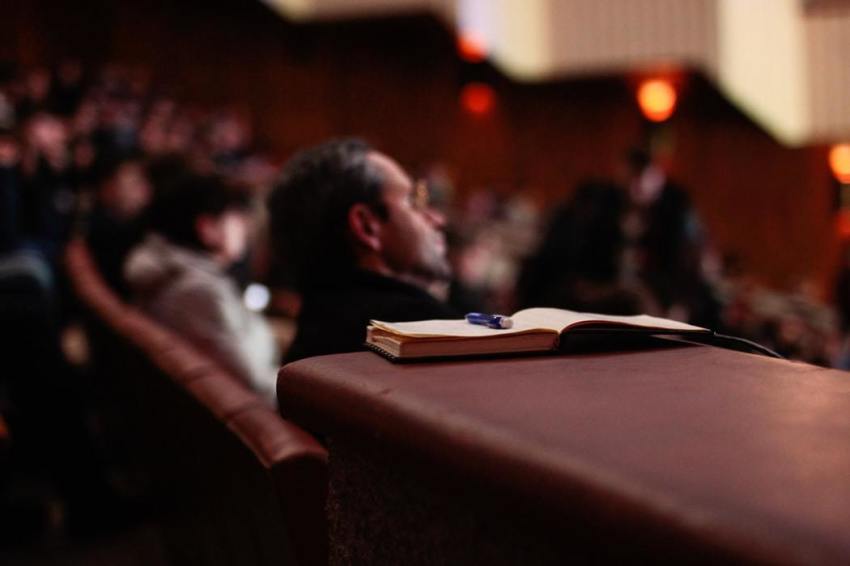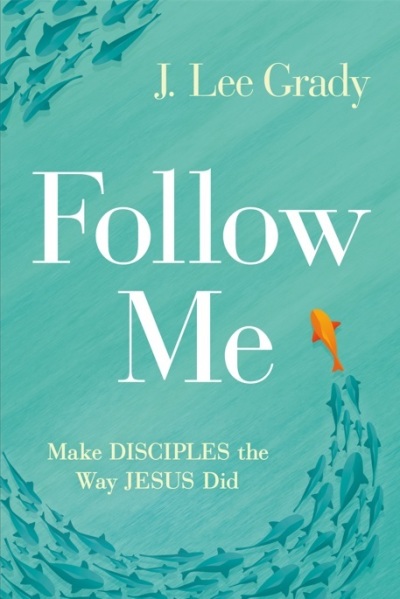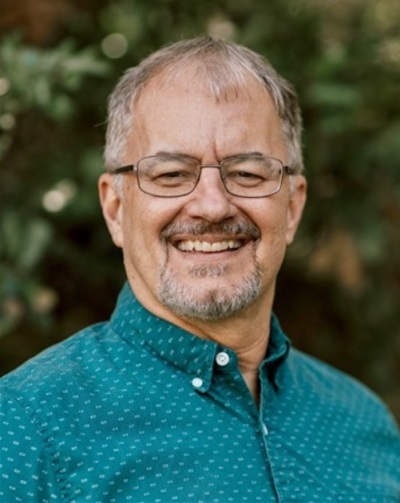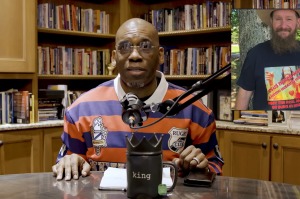Christians must ‘reclaim’ the 'basics of discipleship' to grow the Church, ministry leader says

Christians in the United States need to be more engaged in discipleship through individual relationships with others to help grow churches, according to minister and author Lee Grady.
Grady, a missionary who presently serves as director of The Mordecai Project, a ministry dedicated to empowering women worldwide, makes this argument in his latest book, Follow Me: Make Disciples the way Jesus Did.

Grady draws from his own experiences being a mentor to disciples and offers guidance on how to engage in discipleship with new believers, young and old.
Follow Me includes a forward written by Barry St. Clair, a youth pastor who in the 1970s, helped to disciple a young Grady who had been struggling with his faith.
“Investing in Lee Grady’s life and Lee’s investing in mine stand out as one of my greatest life privileges,” wrote St. Clair. “What you will read in these pages will convince you to do what Lee Grady has done.”
The Christian Post spoke with Grady about his new book, the challenges of discipleship and what advice he has for churches looking to improve their small group offerings.
CP: What led you to write this book?
Grady: I am a speaker, I travel around the nation and the world.
I believe that one of the missing ingredients in the Church today is just getting back to the basics of discipleship. That was something that I experienced as a younger person.
You really need a mentor and so, this is something that was very, very common, very basic in the New Testament Church, but I think we need to reclaim it.
This is really a life message for me that I’m trying to impart to the wider church.
CP: In chapter two, you listed seven reasons that churches do not make disciples. These include ignorance of the Great Commission, a lack of patience and preferring a program to a relationship, among others. Which of the seven do you believe is the most pervasive issue for American churches?
Grady: I think all of those things are important, but I’m finding that a lot of leaders in the Church really feel ill-equipped to build relationships.
I have a lot of pastor friends who tell me that I’m their only friend. There’s been this breakdown in just the simple ability to build relationships. People feel very isolated, insecure. There are a lot of different reasons for that, but I think that is one of the huge breakdowns and that’s why we become more performance-oriented rather than relational.
I see this in the younger generation, too. A lot of the younger men and women that I spend a lot of time with will tell me they thought their generation is struggling with relationships, and there is so much loneliness and isolation and of course COVID, and what we’ve been through the last few years has made that even worse.
CP: Along those lines, you talked in the book about the rising problem of loneliness, especially in American culture. You also described Christianity as a religion of relationships. Much has been made about the decline of church membership in the U.S. in recent years. Do you see a connection between the rise of loneliness and the decline in church membership?

Grady: I think that the overarching reason why we’re losing ground is that we didn’t pass the baton and we didn’t know how.
So, we see in the Bible and the New Testament you have the example of Paul and Timothy, and you have Paul’s letters to Timothy. We realize from reading the New Testament that Paul very effectively transferred what he understood, what he believed to the next generation and did that with Titus, as well. But we haven’t done a good job of that.
And so, I think in a lot of ways in the American Church, it was kind of like parents thinking, “Well, if I take my kids to church, it will sort of happen. They’ll just become Christians because they’re there.”
But then we see the statistics that a lot of younger people today, even if they were raised in the Church, are ditching their faith. And so, what is the solution to that? I think it is if you go back and you see churches where there was relational discipleship going on between — whether it was a youth pastor or just some mentor, somebody who cared about a younger person — then those young people end up becoming those Timothies.
But then when you have this loneliness, this relational struggle that I talked about, that makes it even worse. Because if leaders don’t feel comfortable sitting down and having coffee with someone, or having a small group in their house, or meeting young people at a Starbucks, if there’s not that comfort level for that, then there’s going to be a huge breakdown.
CP: In chapter six, you mentioned the “four hats” of disciple-making: mentor, coach, counselor and spiritual father or mother. Which one would you say has been the most challenging hat for you to wear?
Grady: Well, I would say counselor; that is a role that I play a lot. And I’m not a professional counselor and I’m not telling people that they have to be that. If somebody has a really serious mental or emotional problem, they may have to be referred to somebody who has been trained to help that problem.
But, I do a lot of counseling, because I work with a lot of 20-somethings, and there’s a lot of issues today. There’s so much anxiety.
I don’t know what all the causes of that are, but I find myself helping young men especially through a lot of problems, and I have to have a lot of patience because they don’t necessarily get over those things overnight. I pray with them. I encourage them. I talk it through and we go through steps for healing.
But it’s a challenge, and I would definitely say for me that’s been the biggest, the most challenging role.
CP: You emphasized not only individual relationships but also small groups. You also spoke about the shortcomings of the modern megachurch experience. What advice do you have for megachurches to do a better job of making disciples?
Grady: First of all, whether you are a large church or a small church or a medium church, you can do small groups. It’s important I believe to encourage a culture of discipleship and a culture of small groups. Some big churches do it very well, but then there’s other large churches, their focus is totally on what happens from the stage and that’s going to be a problem. Some small churches don’t do small groups and so they’re missing out as well.
My point is that it needs to be organic, it needs to be not just you decide to appoint people to lead them, you got to have people who really have a passion for that and people who have been discipled and want to mentor to lead groups.
You could end up with just Sunday School classes that are very dry and formal and that’s not going to cut it. Everything we’re talking about in this book, the bottom line is that it’s got to be very relational. It’s got to be loving. It’s got to be about personal connection. It’s got to be led by people who really care. That’s what’s going to make a difference.



























